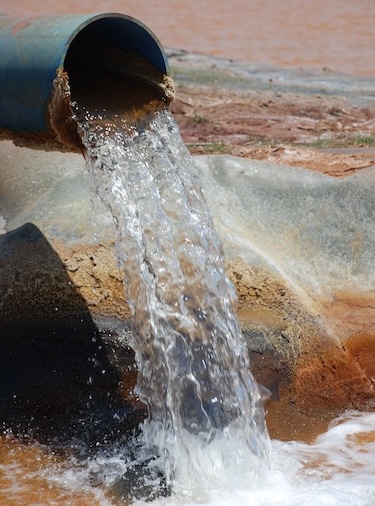By Busani Bafana
NAIROBI | 23 September 2024 (IDN) — Africa stands on the edge of a severe water crisis, threatening its ability to meet critical Sustainable Development Goals (SDGs), a new report reveals.
Despite the continent’s vast water resources, poor management, overexploitation, and the escalating effects of climate change are fueling widespread water insecurity.
The State of Africa’s Environment 2024 report, published by the Centre for Science and Environment (CSE), based in New Delhi (India), highlights that Africa is one of the world’s most water-stressed regions. Paradoxically, this is happening in a continent rich in water resources. The root cause, according to the report, is inefficient water management and overuse. Climate change has only worsened the situation, with water demand projected to soar by 283% between 2005 and 2030.
“The scarcity of water that is being faced by Africa and other regions of the world is as much about the lack of the resource as its mismanagement,” said Sunita Narain, environmental activist and CSE Director General, at the report’s launch. “Our water crisis is in our inability to build an affordable system of water management for people today.”
Plenty water, short on management

According to the report, presented during a media briefing organized by CSE and the Media for Science, Environment, Health, and Agriculture (MESHA), based in Nairobi (Kenya), Africa is in a paradox: an abundance of water but a lack of effective management
“Water is fundamental to life, livelihoods, and the economy. Without addressing water management, we will struggle to get anything right—especially in an era of climate change,” said Narain, urging for immediate action. She emphasized that while Africa has the policies in place, the challenge lies in moving from policy to implementation.
“Scale only comes when we reinvent water conservation so that communities gain both access to water and affordable sewage treatment,” Narain said in an interview.
The report highlights regional disparities across the continent. North African nations like Egypt, Libya, and Tunisia rank among the world’s top 10 most water-stressed countries. Meanwhile, sub-Saharan Africa grapples with severe water pollution, with 60% of its wastewater going untreated and 36% of the population facing water insecurity.
Far-Reaching Impacts of the Water Crisis
The consequences of Africa’s water crisis extend well beyond basic access to clean water. The lack of sanitation and clean water significantly contributes to the spread of waterborne diseases like cholera and diarrhea, which remain widespread. Currently, 70% of Africa’s wastewater is untreated, contaminating water sources and threatening public health.
Furthermore, water scarcity is fueling conflicts, displacement, and migration, particularly in regions that share transboundary rivers.
Hope Through Solutions
Despite the dire situation, there is hope. Africa has the opportunity to turn the tide on its water crisis by adopting Integrated Water Resources Management (IWRM) practices, promoting water-efficient technologies, and prioritizing rainwater harvesting. The report emphasizes rainwater harvesting as a vital strategy, with the potential to increase water availability by up to 30%.
“We must capture every raindrop,” Narain stressed, highlighting the importance of decentralized water systems and improved storage to prevent pollution of harvested water.
Dhesigen Naidoo, an advisor to South Africa’s Presidential Climate Commission, pointed out that climate change acts as a “threat multiplier,” increasing the intensity of droughts and floods. This, in turn, exacerbates food insecurity and widens inequalities. Naidoo called for investment in water infrastructure, advocating for innovative funding mechanisms such as blended finance.
A Global Responsibility
At the recent Summit of the Future in New York, global leaders adopted a Pact for the Future, which aims to accelerate the implementation of the SDGs. SDG 6 focuses on water and sanitation. Many African countries, however, are far from meeting water and sanitation goals underscoring the need for immediate investment in water infrastructure.
“We know the global goals are set, and we know we are falling behind,” Narain said. “It’s not just about finance, —it’s about the method and changing how we manage water resources.”
The report also calls for stronger water governance and more effective policy frameworks. Francis Oremo, senior program manager at the Institute for Law and Environmental Governance (ILEG), emphasized the importance of localized solutions:
“In Africa’s situation, water governance is terrible,” said Oremo, “As a means to an end, water governance is good if it can solve water challenges and bad if it does not respond to place-based needs.”
Africa’s water crisis is a complex challenge tied to sustainable development, climate resilience, and governance. Yet with the right policies, investments, and public awareness, the continent can transform its water struggles into opportunities for growth and sustainability. [IDN-InDepthNews]
Collage of a picture of the launch of water insecurity report by Busani Bfana showing MESHA CEO Daniel Agkhan, CSE director general Sunita Narain and CEO’s Souparno Banerjee (left-right) and water insecurity graphic from CSE.


